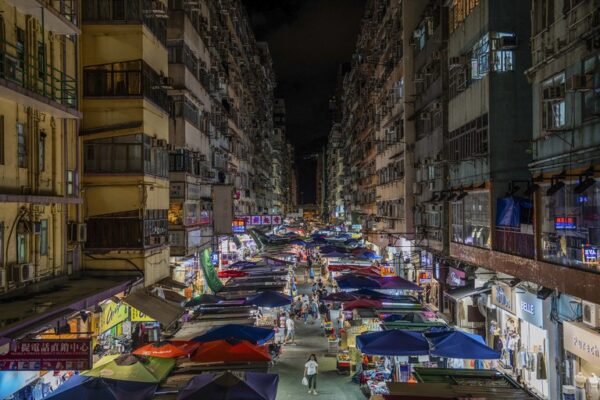In a rare moment in the international spotlight, Laos was the topic of two articles published by major world media outlets in early October, although not with the sort of headlines the ruling communist party wanted to read. The BBC ran a piece on October 8 under the banner: “’I feel hopeless’: Living in Laos on the brink”. Days later, the Washington Post went with “China’s promise of prosperity brought Laos debt — and distress”, presumably because the editors thought Laos isn’t interesting enough unless tales of Chinese debt traps are also included. But both gave an accurate sense of the grim situation most Laotians, especially the young, now find themselves in. As the BBC report began: “Confronted with a barren job market, the Vientiane resident holds no hope of finding work at home, and instead aims to become a cleaner or a fruit picker in Australia.” Laotians are leaving the country in droves. My estimate is that around 90,000, perhaps more, will have migrated officially by the end of the year, joining around 51,000 who left last year and the hundreds of thousands who have moved abroad earlier. Laos has had a horrendous last few years. The landlocked Southeast Asian nation didn’t do particularly well during the COVID-19 pandemic. Since the early months of 2021, it has had one of the worst inflation rates in Asia, peaking at 41.3 percent in February and still hovering at around 25 percent. The kip, the local currency, is collapsing; it hit an all-time low in mid-September when it was trading in commercial banks at 20,000 to the U.S. dollar, compared to around 8000 (US$44) in 2019. An acquaintance in Vientiane tells me that it used to cost 350,000 kip to fill up his car with diesel in 2019; today, it’s closer to 1.2 million kip (US$58) and the price keeps rising—and bear in mind that the minimum wage is now just 1.6 million kip (US$77), per a tiny increase in October. Another correspondent of mine, a foreigner, says he’s now leaving: “It’s got to the point where I’m just… done!” Motorcyclists line up for gas in Laos amid shortages, May 10, 2022. Credit: RFA The communist government is hopeless in responding, and not even the rare resignation of a prime minister last December has added any vitality to its efforts. Worse, far larger structural problems remain. The national debt, probably around 120 percent of GDP, puts Laos at risk of defaulting every quarter. It cannot continue to borrow so the authorities are jacking up taxation, and because of flagrant corruption, the burden falls more heavily than it should on the poor. Looking ahead, what is the national debt if not a tax deferred on the young and yet-to-be-born? There are not enough teachers in schools and not enough schools for students. Attendance rates have plummeted. Public expenditure on education and health, combined, has fallen from 4.2 percent of GDP in 2017 to just 2.6 percent last year, according to the World Bank’s latest economic update. More than two-thirds of low-income families say they have slashed spending on education and healthcare since the pandemic began, it also found. According to the BBC report, 38.7 percent of 18-to-24-year-olds are not in education, employment or training, by far the highest rate in Southeast Asia. A Laotian youth told me that few people want to waste money on bribes to study at university when they can quickly study Korean and try to get a high-paying factory job in Seoul. In June, an International Labour Organization update gave a summary of the numbers of Laotians leaving by official means, as estimated by the Ministry of Labour and Social Welfare: Thailand 2022: 51,501 (29,319 women) 2023, up until 30 June: 42,246 (23,126 women) Malaysia 2022: 469 men Japan 2022: 312 (122 women) 2023, up until 30 June: 289 (120 women) South Korea, long-term (3 years contract) 2022: 796 (194 women) 2023, up until 30 June: 389 (54 women) South Korea, short-term seasonal workers (5 months contract) 2022: 1,356 (598 women) The first thing to note is that this is emigration by official channels. To Japan and South Korea, that official process is arduous and involves a lengthy contract procedure before leaving the country. However, the workers in South Korea can earn in a day what they would earn in a month in Laos. It’s less strenuous getting to Thailand although a considerable number of Laotians emigrate there by unofficial means, hopping across the border and not registering that they’ve left. In 2019, the Thai authorities estimated that there were around 207,000 Lao migrants working legally and 30,000 illegally, but the actual number of legal and illegal workers could have been as high as 300,000. (No one really knows how many Laotians work illegally in Thailand.) Also, consider how many Laotians have left the country so far this year compared to 2022. If we assume that emigration flows keep the same pace in the last six months of 2023 as they did in the first six, around 84,000 Laotians will have officially emigrated to Thailand by the end of this year, up from 51,000 in 2022. In April, a National Assembly delegate castigated the government for the fact that “workers have left factories in Laos for jobs in other countries because the wages paid by factories here are not keeping pace with the rising cost of living…As a result, factories in Laos are facing a labor shortage.” Saving grace? But isn’t this actually a saving grace for the communist Lao People’s Revolutionary Party (LPRP), at least in the short term? Much woe betide is made of Laos’ land-locked geography but it is rather convenient to border five countries, four of which are wealthier, if you want to avoid a situation of having disaffected, unemployed or poorly paid youths hanging around doing nothing but getting increasingly angry at their dim prospects. Conventional wisdom holds that authoritarian regimes constrain emigration as it can lead to mass labor shortages, one reason…





